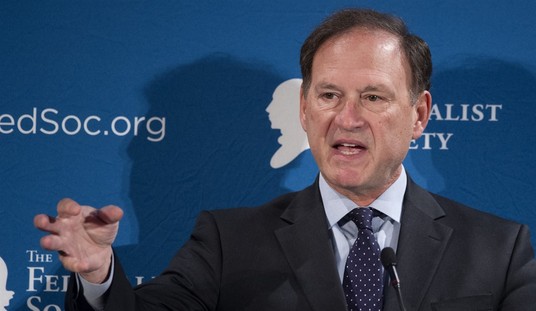Cue The Drudge-Siren : The NYSE put Rule 48 in effect to “smooth” the market opening Monday morning.
Oh, the glorious smell of idiots panicking in the morning. Dow Jones Industrial Average Futures were off by somewhere between 300 and 400 points Monday morning as the birds happily sang and the grass grew in its bedewed verdure. Last week they panicked because the mean, old nasty Federal Reserve threatened to tighten the money supply and actually make a dollar hold value. Today, Chicken Licken tells Goosey Lucy and Lucky Ducky that South Korean and Chinese exports are down. And now, lo and behold, Charlie don’t surf.
But the Fed Rate Hike and the Korean Export numbers are an excuse, not a reason. They are a symptom, not the disease. They are a trigger that overcomes a certain static friction. What has really happened to the equities market is that stock valuations no longer reflect the actual earnings of the corporation issuing the shares. In commodities markets, this is called a decoupling. In options markets, this got handled via arbitrage. Ann Barnhardt explains how this process works.
The threat (or promise) of delivery upon expiration is what keeps the futures markets tethered to the cash markets. Up until now, if an unreasonably wide spread between the futures price and the underlying physical commodity market got too out of whack, a process called “arbitrage” would kick in. Arbitrage is when a party simultaneously buys and sells on two separate but related markets in order to capture an inefficient spread between those two markets.
Given the extent to which the stock market has been propped up by the loose money policies of The Federal Reserve coupled with low bond rates on key treasury securities, there is a decreasing correlation between stock prices and actual corporate earnings. What people really buy shares in is a continued set of political policies ordained by The Federal Reserve. This investment strategy makes two key assumptions.
1) The Federal Reserve will continue the same policies*.
2) They will continue to produce a set of economic effects that make those policies investor friendly.
The current negative action in the market futures is driven by the assumption that The Federal Reserve may not be big enough to backstop much of The Pacific Rim. If the Fed can’t adequately control foreign currency and commodity risk in the American Economy, it no longer controls as much of the American Economy as previously advertised. The Greenspan Briefcase Index tells us nothing about South Korean Industrial productivity. If South Korean industrial productivity matters more, the US Federal Reserve begins to matter less. At that point, people are forced to reevaluate market positions based on the actual valuation of the underlying security. People too stupid to so endeavor will then make like the lemmings and take a blind follower’s walk off the cliff.
*- Much of the August investment market drama was driven by Fed members who desired a policy change being met with a coordinated selling riot to punish their apostasy from The Temple of Loose Money.















Join the conversation as a VIP Member